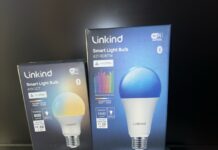CUPERTINO, California – Apple, Inc. is back in hot water after Italy’s antitrust agency threw a $12 million (€10 million) lawsuit against the tech giant for deceptive marketing practices surrounding its iPhone disclaimers (or lack thereof).
The Italian Competition Authority (AGCM) argues that Apple had advertised its iPhone 8 – iPhone 11 product line as being “waterproof.” But they left out one major detail: that only applies in certain circumstances.
In its press release, the AGCM alleges Apple intentionally misled consumers in two ways.
#1 – It’s Not Actually Waterproof
First, Apple’s website and accompanying promotional materials for the iPhone 8 through iPhone 11 product line claims that these models are water-resistant between one and four meter-depths, for up to 30 minutes.
According to its website, Apple says the most recent iPhone models, beginning with the iPhone 7 (2016) on, “are splash, water, and dust resistant and were tested under controlled laboratory conditions.”
Newsflash. The Italian antitrust agency argues that when these claims were put to the test, under lab conditions using still, pure water– and it was anything but ‘waterproof.’
#2 – Apple Refuses to Repair Water Damaged Phones In Its Warranty
Second, Apple’s warranty terms explicitly voided coverage for water-damage phones, refusing to repair any models that had water damage. Apple’s disclaimer simply states that phones were not covered for liquid damage–something which arguably deceives the “reasonable consumer.”
An Apple a Day, Doesn’t Keep the Fines Away
This isn’t the first time Apple has been nailed for deceptive marketing practices and not the first time AGCM has come after the tech giant. Back in 2018, the AGCM fined both Apple and Samsung approximately $15 million for forcing updates onto users’ phones that caused them to slow down–a rumor which has been traveling throughout the Apple community for years.
But over the years, Apple has faced significant scrutiny and enforcement actions from other European agencies–more regulatory action than can be said for its U.S. counterparts.
2017: U.S. ‘Batterygate’
Back in 2017, iPhone users discovered that by upgrading to the then-latest iOS, it intentionally limited the phone’s processing speed, causing the battery to age much quicker. In a series of lawsuits filed between 2017 and 2018, dubbed ‘Batterygate,’ users of these iPhone models claimed they had to buy new devices just to fix the problem. The pair of lawsuits were eventually joined into one complaint.
Back in March of this year, Apple agreed to a $500 million settlement after admitting to slowing down its iPhone 6 and 7 product line. Under the terms of the settlement, Apple agreed to offer $25 to any current or former owner of a covered iPhone. For those named class members, they would receive $1,500 or $3,500, and around $90 million to pay attorneys’ fees.
February 2020: France and a $27 Million Fine
Back in February, the French watchdog for competition and fraud (DGCCRF) assessed $27.4 million (€25 million) against Apple, following a two-year investigation into the marketing practices surrounding its iOS updates. Apple confirmed that it did intentionally slow down devices for the sole purpose of avoiding complete shutdowns caused by aging lithium-ion batteries.
In its initial complaint, filed by the French consumer organization, HOP (Stop Planned Obsolescence) in late 2017, it discovered that Apple’s updates to its iOS 10.2.1 and 11.2 were slowing down the iPhone 6, SE, and 7. In its February assessment, DGCCRF alleged that the tech giant failed to notify customers that updating some versions of iOS would slow down their phones, at times requiring the user to upgrade their phones.
November 2020
Back in November, Apple had to again answer questions concerning both the interference with and battery degradation of iPhone devices. The tech giant agreed to a second settlement with 34 U.S. states.
Come December 4, Apple will have to attend a fairness hearing that will decide whether the settlement was handled properly. As it stands, Apple will pay a minimum of $310 million to settle that earlier lawsuit and up to $500 million on those claims. Unfortunately, no new claims are able to be submitted, as the deadline to submit a claim ended in October.
Latest iOS 13 News
Apple’s latest iOS 13 update includes a new feature, called “optimized battery charging,” which mitigates the damage that charging dows to the lithium pack, ideally extending the life of the phone’s battery.








